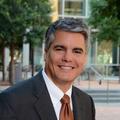
Gregory L Fenves
Greg Fenves began his appointment as president of The University of Texas at Austin on June 3, 2015. Previously, he served the university as executive vice president and provost.
He is a member of the National Academy of Engineering, the highest national honor awarded to engineers in the United States, and holds the Cockrell Family Chair in Engineering #15 at UT Austin.
Bringing a career of teaching, research and administrative experience to his new position, Fenves' accomplishments included defining strategic academic goals and priorities to advance excellence, streamlining operations for more cost effectiveness, focusing on continuing UT Austin's leadership in transforming undergraduate education, and the launch of the Dell Medical School.
Service at UT Austin
Prior to his role as executive vice president and provost, Fenves was appointed the eighth dean of the Cockrell School of Engineering at UT Austin in 2008. With more than 7,500 students and research expenditures exceeding $160 million a year, the Cockrell School is a top-10 ranked engineering school. During his five-year leadership of the school, Fenves recruited 57 engineering faculty, bringing the total number of tenure/tenure-track faculty to 280. He helped increase the entrepreneurial and technology commercialization programs for students and faculty throughout UT Austin.
Fenves led a capital campaign for the Cockrell School, in which the Cockrell School raised the largest amount, $356 million, of any unit on campus in the $3 billion Campaign for Texas. During his tenure, the book value of the endowment for the Cockrell School increased more than 30 percent. One of his major goals was to build the Engineering Education and Research Center (EERC), a $310 million, 430,000-square-foot building dedicated to interdisciplinary research and hands-on student projects, which began construction in 2013 and is scheduled for completion in 2017.
Fenves began his career as an assistant professor in the Department of Civil, Architectural and Environmental Engineering at the Cockrell School from 1984-87.
Academic Leadership and Research at University of California, Berkeley
Before taking the deanship at UT Austin, Fenves served as chair of the Department of Civil and Environmental Engineering at the University of California, Berkeley from 2002 to 2007. He was on the faculty of UC Berkeley for more than 20 years, and he was a key contributor for the Pacific Earthquake Engineering Research Center, a multidisciplinary center funded by the National Science Foundation for a decade. In addition, he led a major industry-sponsored program to improve the seismic safety of utility and transportation systems.
An internationally recognized structural engineer, Fenves' research focus is on computational simulation of structures subjected to earthquakes and technology for performance-based earthquake engineering. He led the development of one of the most widely used open-source software platforms in the civil engineering profession. He was one of the early civil engineering researchers to develop wireless sensor networks for assessing the structural health of buildings, bridges and infrastructure.
Education and Awards
Fenves earned a bachelor's degree with distinction from Cornell University and a master's degree and Ph.D. from the University of California, Berkeley.
He has received numerous national awards, including the Presidential Young Investigator Award from the National Science Foundation, and from the American Society of Civil Engineers, the Walter L. Huber Research Prize, the Moisseiff Award and the J. James R. Croes Medal.
Personal Information
Fenves is married to Carmel Martinez Fenves, a textile artist and small business owner. They have two adult daughters, Hannah, a graphic designer and Emily, a social worker, both of whom reside in Austin. In his spare time, Fenves enjoys reading both fiction and nonfiction and traveling with his family. Art galleries and museums are always at the top of the list of destinations.
Programming descriptions are generated by participants and do not necessarily reflect the opinions of SXSW.